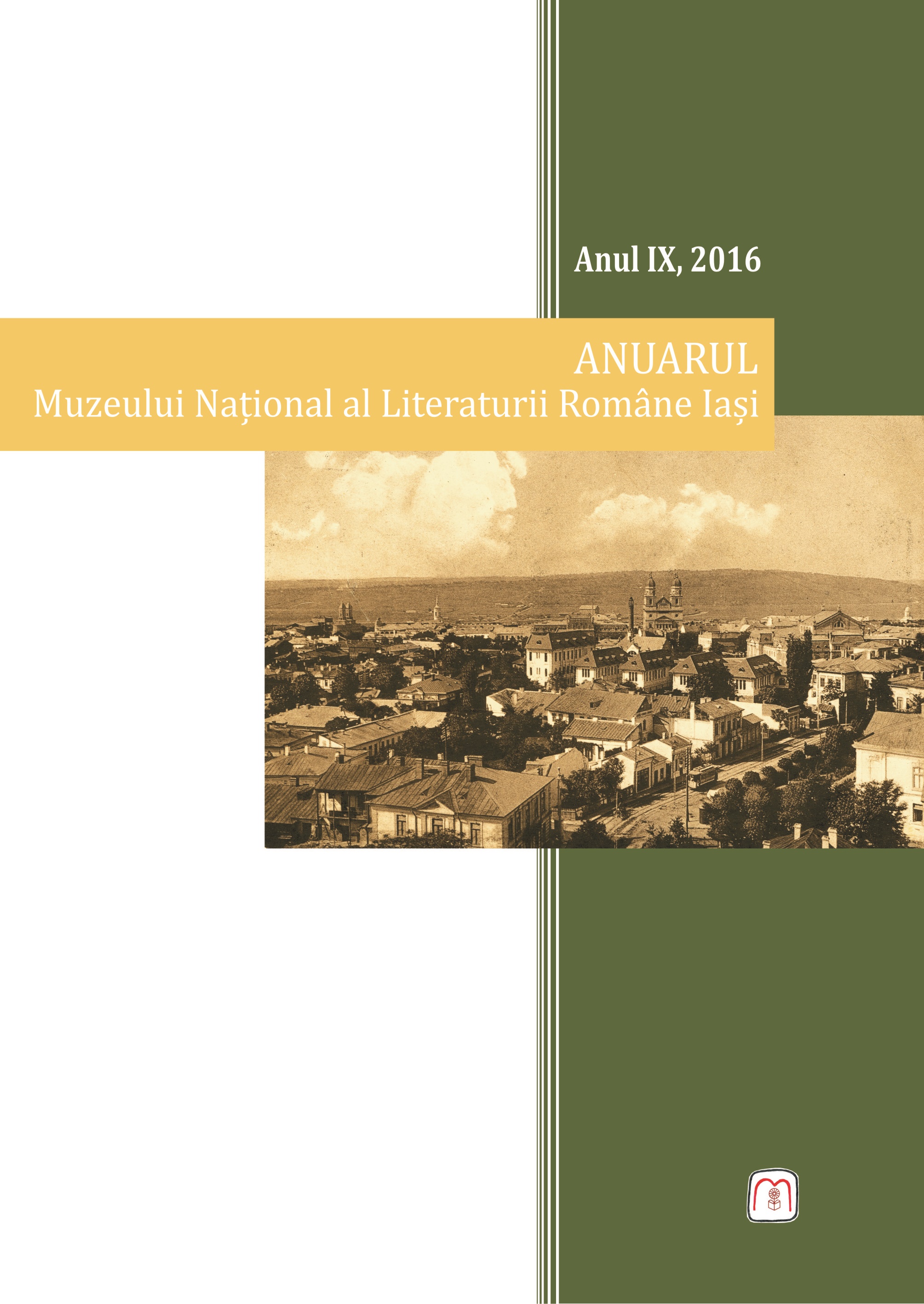„Vom fi ce am fost odatăˮ: capitale simbolice în lumi periferice. Iaşul şi Cracovia secolului al XIX-lea
sau cum se poate întâlni memoria cu istoria
“We’ll Be What We Once Were”: Symbolic Capitals in Peripheral Worlds. Iași and Cracow in the 19th century or How Memory and History Meet
Author(s): Raluca Elena GolesteanuSubject(s): History
Published by: Editura Muzeelor Literare
Keywords: Central and Eastern Europe; centre-periphery dynamics; material memory spaces vs. symbolic memory spaces; constitutionalism; local elite
Summary/Abstract: The present paper uses a historical and literary perspective to present the case of two cities from Central and Eastern Europe in the crucial attempt of defining their modern identity. Without intending to put any value labels and relying strictly on geographical criteria, we consider Iasi and Cracow to be representative for Eastern and Central Europe, respectively. The article will try to demonstrate the existing similarities, regardless of the area and the historical heritage, between the ways in which cultural symbolism tends to replace political attributes as a compensation for the loss of the latter ones. One of the key objectives of this study is to present in a comparative manner the image of these two cities as they are presented in the memoires of various personalities of the time, when both political and administrative power are transferred to other cities which from that moment on are considered to be centres: for Iași we refer to Bucharest, the capital of the United Principalities, and for Cracow we refer to Lvov, the capital of Galicia, part of the Habsburg Monarchy. Moreover, we intend to point out the way in which the local elites of Iași and Cracow negotiated with the “centres” for preserving the old privileges or for acquiring new ones. Cracow is a key figure from this point of view as it has managed to present a new way of deciphering the political reality of the second half of the 19th century on the territory of the Dual Monarchy, more precisely, assimilating the concept of spiritual capital for a state that missed political existence – Poland.
Journal: Anuarul Muzeului Naţional al Literaturii Române laşi
- Issue Year: IX/2016
- Issue No: IX
- Page Range: 40-65
- Page Count: 26
- Language: Romanian

